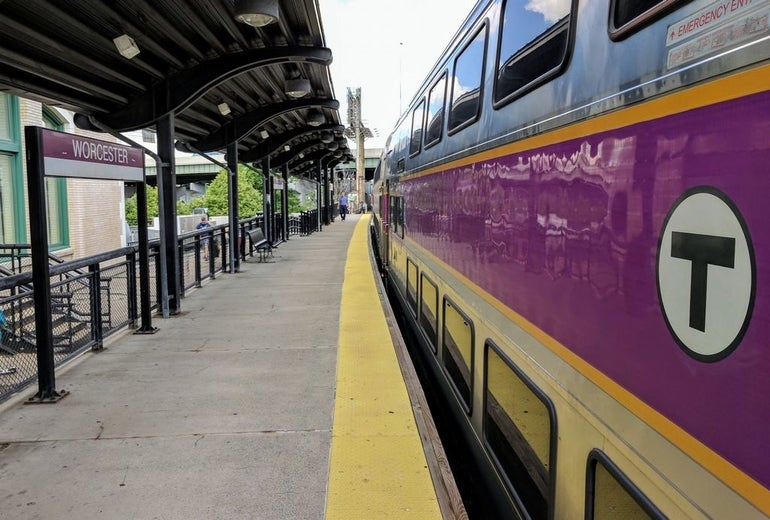The MBTA in fiscal 2018 has awarded $639 million in new construction contracts addressing the system’s repair needs, according to Assistant General Manager for Capital Delivery Beth Larkin.
That figure is nearly six times as large as the awards in fiscal 2016 and nearly $200 million more than the T’s public goal for capital expenditures, Larkin told the Fiscal and Management Control Board.
“Publicly our goal had been $450 million this year. Internally we had very much strived to want to exceed that,” Larkin said.
In August 2015, T officials pegged the cost of bringing the entire transit system into a “state of good repair” at $7.3 billion, and Transportation Secretary Stephanie Pollack has emphasized that repairing and modernizing the existing system is the T’s top priority even as it works to expand service.
MBTA service levels have been a focus in recent years, with frustrated riders looking for a product that is more consistently reliable. State officials have responded, in part, by saying they are putting more money into equipment to improve service.
Last year the T spent $328 million on state of good repair, and the T spent $110 million in fiscal 2016, according to Larkin. Fiscal 2019 will begin at 12 a.m. on Sunday, and Larkin said the next 12 months are looking “very good” in terms of capital projects.
The control board on Monday approved a $74 million contract for a Barletta-Fischbach joint venture to upgrade tracks and signals on the Green Line’s D Branch, and $28.7 million for Middlesex Corporation to perform on-call construction system-wide, including spot tie replacement and spot track replacement.
Control board member Steve Poftak said he thinks on-call contracting is a “great tool” for the T, and hopes T staff can provide some analysis about the strengths and weaknesses of that sort of procurement. Larkin said the Green Line track work project was more expensive because of the price of steel, which has become wrapped up in President Donald Trump’s sparring with China over international trade.
“We’ve got issues with respect to tariffs, steel prices, supply and demand,” Larkin said.

